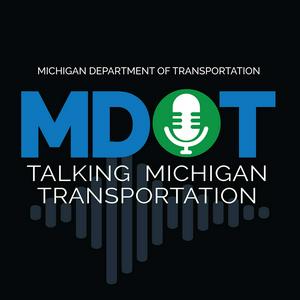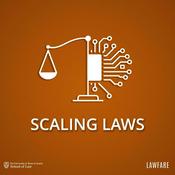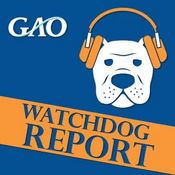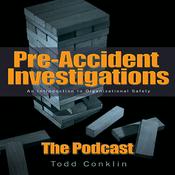255 episodes
- On this week’s Talking Michigan Transportation podcast, a conversation with Mike Hayes, a former Midland lawmaker who is stepping down from the State Transportation Commission (STC) after 14 years of service, the past two as chairman.
Hayes was a business executive who has been active in community affairs for many years and served in the Michigan House of Representatives. He talks about how his background as a community leader and lawmaker informed his thinking about transportation infrastructure and how his views have evolved.
Also discussed:
The commission’s role and what he considers their most significant action in recent years: approving the bond sale in 2020 for Gov. Gretchen Whitmer’s $3.5 billion Rebuilding Michigan initiative;
How commissioners can stay abreast of rapidly developing technologies and innovations in transportation; and
His service representing Michigan on the International Authority, the body overseeing construction of the Gordie Howe International Bridge, which will continue. The International Authority consists of six members with equal representation from Canada and Michigan. - On this week’s Talking Michigan Transportation podcast, a conversation with the new chief administrative officer at the Michigan Department of Transportation (MDOT) about his role and his first big challenge, overseeing a legislatively mandated study and pilot of a road user charge (RUC) program.
Paul McDonald joined the department in November, coming from the Michigan Department of Environment, Great Lakes and Energy (EGLE). He talks about his perceptions of transportation coming into the department, and what his new portfolio includes.
This week, he chaired the first meeting of the Technical Advisory Committee, made up of people both inside and outside government who will offer expertise as the process moves forward. - On this week’s edition of the Talking Michigan Transportation podcast, conversations about the vital message to drive to the conditions, especially during winter storms.
First, Michigan State Police 1st Lt. Michael Shaw offers his insights on the causes of multi-vehicle crashes like the one that occurred between Hudsonville and Zeeland in Ottawa County on I-196 Monday, Jan. 19.
Later, Bruce Smith, a National Weather Service (NWS) meteorologist in Grand Rapids, talks about how the NWS defines various warnings and advisories and what was in place Monday when the crashes occurred. - Surface transportation reauthorization is the regular federal legislative process to renew and fund U.S. transportation programs for highways, transit, rail and safety, setting policies and priorities for billions in spending, with the current major authorization (part of the Infrastructure Investment and Jobs Act) set to expire Sept. 30, 2026, prompting ongoing discussions for the next bill.
On this week’s edition of the Talking Michigan Transportation podcast, Zach Rable, a federal policy specialist at the Michigan Department of Transportation (MDOT), talks about priorities for Michigan.
He explains those priorities largely dovetail with those the American Association of State Highway and Transportation Officials (AASHTO) are pushing.
Photo by Adam Michael Szuscik on Unsplash. - On this week’s edition of the Talking Michigan Transportation podcast, a conversation with Peter Anastor, director of the Michigan Department of Transportation (MDOT) Office of Rail, about where things stand for passenger rail service at Michigan Central in Detroit.
Anastor also offers an update on plans to link passenger rail service in Michigan with service in Canada and create a link between Chicago and Toronto.
In October, MDOT, the City of Detroit and Michigan Central signed a memorandum of understanding (MOU) to begin preliminary assessments for a new multimodal transportation hub located within the 30-acre Michigan Central Innovation District on a parcel just southwest of the station.
Key provisions include:
The partners will utilize a $10 million grant awarded to MDOT through the Federal Transit Administration's Rebuilding American Infrastructure with Sustainability and Equity (RAISE) grant program (now known as the Better Utilizing Investments to Leverage Development, or BUILD, grant program), plus an additional $30 million in state funds.
This proposed hub would include infrastructure for passenger rail and intercity bus service.
Decisions about final project designs, funding and timelines will be shared as the exploratory phase progresses.
More Government podcasts
Trending Government podcasts
About Talking Michigan Transportation
The Talking Michigan Transportation podcast features conversations with transportation experts inside and outside MDOT and will touch on anything and everything related to mobility, including rail, transit and the development of connected and automated vehicles.
Podcast websiteListen to Talking Michigan Transportation, The DSR Network and many other podcasts from around the world with the radio.net app

Get the free radio.net app
- Stations and podcasts to bookmark
- Stream via Wi-Fi or Bluetooth
- Supports Carplay & Android Auto
- Many other app features
Get the free radio.net app
- Stations and podcasts to bookmark
- Stream via Wi-Fi or Bluetooth
- Supports Carplay & Android Auto
- Many other app features


Talking Michigan Transportation
Scan code,
download the app,
start listening.
download the app,
start listening.







































